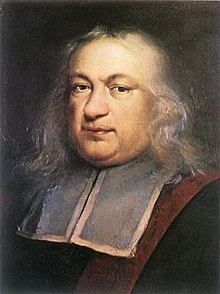Fermat's little theorem states that if p is a prime number, then for any integer a, the number a p − a is an integer multiple of p. In the notation of modular arithmetic, this is expressed as
For example, if a = 2 and p = 7, 27 = 128, and 128 − 2 = 7 × 18 is an integer multiple of 7.
If a is not divisible by p, Fermat's little theorem is equivalent to the statement that a p − 1 − 1 is an integer multiple of p:
For example, if a = 2 and p = 7, 26 = 64, and 64 − 1 = 63 = 7 × 9.
Fermat's little theorem is the basis for the Fermat primality test and is one of the fundamental results of elementary number theory. The theorem is named after Pierre de Fermat, who stated it in 1640. It is called the "little theorem" to distinguish it from Fermat's last theorem.
History
Pierre de Fermat first stated the theorem in a letter dated October 18, 1640, to his friend and confidant Frénicle de Bessy as the following: p divides a p−1 − 1 whenever p is prime and a is coprime to p.
As usual, Fermat did not prove his assertion, only stating:
Et cette proposition est généralement vraie en toutes progressions et en tous nombres premiers; de quoi je vous envoierois la démonstration, si je n'appréhendois d'être trop long.
(And this proposition is generally true for all progressions and for all prime numbers; the proof of which I would send to you, if I were not afraid to be too long.)
Euler first published a proof in 1736 in a paper entitled "Theorematum Quorundam ad Numeros Primos Spectantium Demonstratio", but Leibniz left virtually the same proof in an unpublished manuscript from sometime before 1683.
The term "Fermat's Little Theorem" was first used in 1913 in Zahlentheorie by Kurt Hensel:
Für jede endliche Gruppe besteht nun ein Fundamentalsatz, welcher der kleine Fermatsche Satz genannt zu werden pflegt, weil ein ganz spezieller Teil desselben zuerst von Fermat bewiesen worden ist."
(There is a fundamental theorem holding in every finite group, usually called Fermat's little Theorem because Fermat was the first to have proved a very special part of it.)




No comments:
Post a Comment